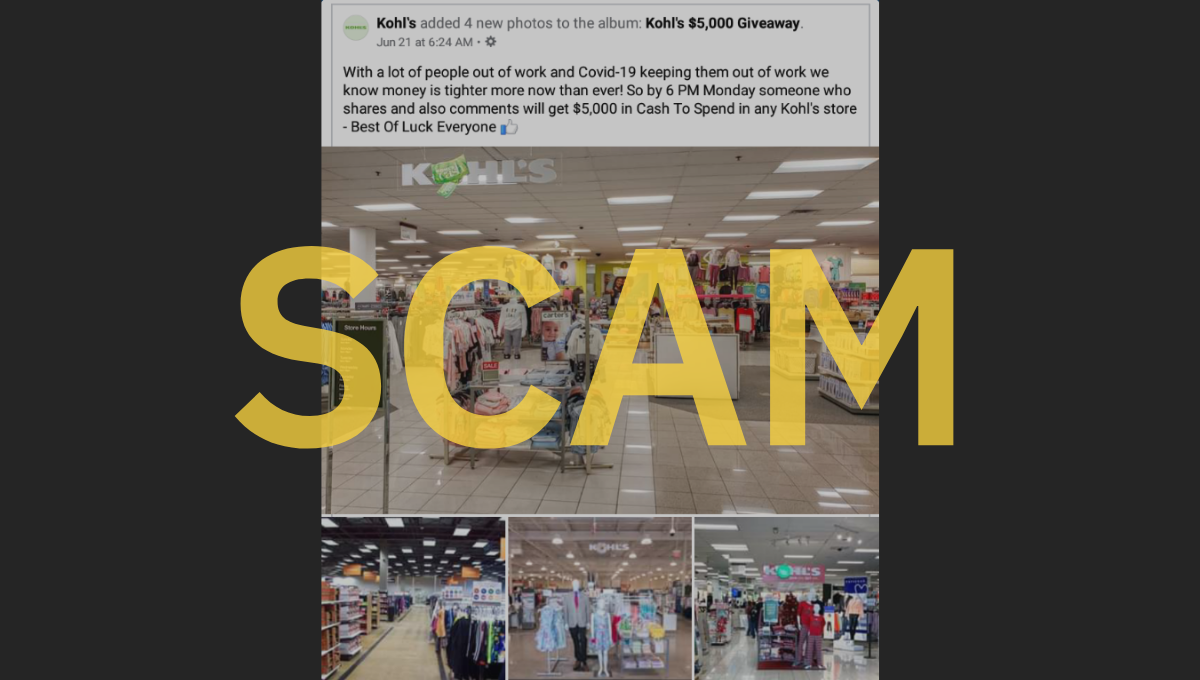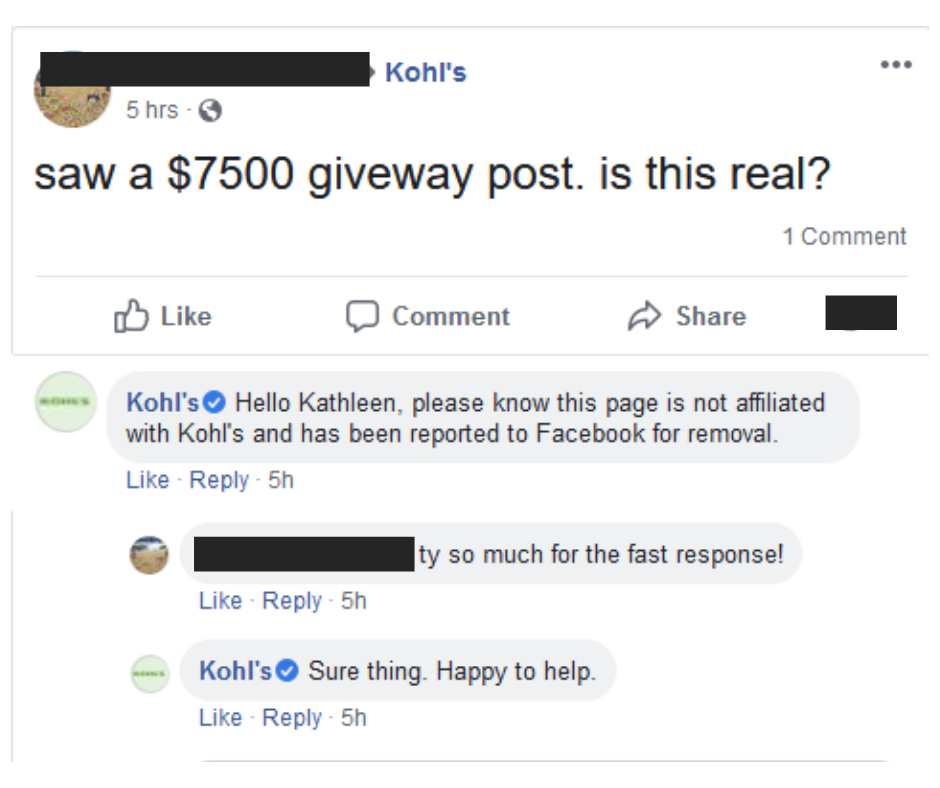In June 2020, a flood of reader queries alerted us to a dubious offer circulating on Facebook.
An unverified Facebook page using the name “Kohl's” posted the following message along with several pictures of what appeared to be Kohl's stores: "With a lot of people out of work and Covid-19 keeping them out of work we know money is tighter more now than ever! So by 6 PM Today someone who shares and also comments will get $5,000 in Cash To Spend in any Kohl's store - Best Of Luck Everyone."
Some users reported seeing a similar offer, but with an even higher reward of $7,500.
As WAND reported, the verified Kohl's Facebook account confirmed the offer was not genuine.
As of this writing, the scam account and posts about the offer in question appeared to have been scrubbed from Facebook.
Unsure about an offer you see online? Here's what to look for:
- Is there a blue check mark next to brand name on the social media profile? If no, it's not a verified account and unlikely to be affiliated with a major brand.
- Cross check the company's website and social media profiles for similar promotions. Don't see them there? That's a good sign the company is not participating in that promotion.
- Ask yourself: Why would someone pay a person thousands of dollars for sharing and commenting on a Facebook post — something that millions of people do for free every day? It's possible that the post is connected to "like-farming" or other nefarious efforts to swindle unsuspecting users.
The Better Business Bureau also offers these tips for protecting yourself from such scams:
Protect yourself from Like-Farming with these tips
- Use your good judgement. If a post says you can win something just by sharing the post, it’s probably not true. If a post tugs at your heartstrings and isn’t about someone you know personally, be wary about the truthfulness of its contents.
- Don’t click “like” on every post in your feed. Scammers are counting on getting as many mindless likes as possible, so be sure you only “like” posts and articles that are legitimate. Don’t help scammers spread their con.
- Be cautious when it comes to sharing your personal information. Never give out personal information, such as your full name, telephone number, address, etc. to a person or company you don’t know or trust.
- Update your web browser. Make sure you always have the latest version of your browser. That way, if you do accidentally click on a scammer’s post, your browser will be more likely to warn you about suspicious sites.
- Look for the blue checkmark. Many social media platforms verify pages from brands and celebrities so that users can decipher real pages versus copycats. Make sure you look for that trust mark before liking and sharing content.



